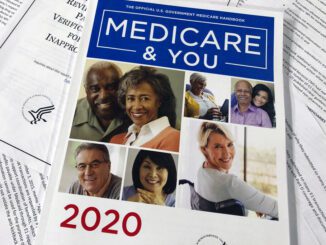
(Article first appeared in the July 25, 2023 edition of Discourse magazine published by the Mercatus Center at George Mason University)
5th Law: The more sympathetic the constituency, the worse the policy.
This is one of the most powerful forces operating in politics — one that warrants understanding by any analyst or voter. As a general rule, the more sympathetic a cause or a constituency, the less we are inclined to apply critical thinking to any action described as supporting it. No one wants to be seen as opposing help to disabled veterans, child victims of sexual abuse, individuals battling breast cancer, 9/11 first responders or any other sympathetic group. We are eager to declare ourselves as being on the side of the vulnerable and against the oppressor. It is not generally safe, politically, for an elected official to be depicted as opposing support for any group that garners widespread sympathy.
The result is that a much lower level of scrutiny is applied to spending on sympathetic groups and causes than to other federal legislation. When Americans are asked whether we should spend more or less on a sympathetic cause or group, they will generally respond with “more” before even knowing how much is currently being spent. The other side of the coin is that when a politician is seemingly allying with a group for which virtually no one feels sympathy (as a hypothetical example, “corporate billionaire tax-evading polluters”), chances are much better that they’re actually standing up for an important policy principle, because there is no political gain in their doing so.
These dynamics cause some parts of the budget to persistently grow far faster than other parts, often completely disconnected from what a thorough analysis would reasonably conclude is optimal policy. For example, Social Security and Medicare are allowed to grow far faster than budget experts agree is sustainable, largely because seniors remain a sympathetic constituency despite having higher incomes than most Americans. No politician wants to get crosswise with that sentiment.
Recent Medicaid expansion has resulted in dramatic increases in improper payments and even reduced spending on children’s health, but has continued largely unquestioned because it is synonymous with healthcare for the sympathetic poor. Federal environmental regulation is notoriously costly and inefficient, largely because government officials cannot bear to be thought of as being in bed with polluters, and thus, they overcompensate to avoid that taint.
A useful rule of thumb when reading of any political controversy is to check yourself for the degree of sympathy you feel for the constituencies involved. If you feel a strong identification with one constituency and a strong aversion to another, this suggests the necessity of applying a much higher level of skeptical scrutiny to your reflexive policy instincts.
6th Law: What initially appears as venality is usually incompetence.
(Also known as Blahous’ Political Corollary to Hanlon’s Razor, which reads, “Never attribute to malice that which is adequately explained by stupidity.”)
This law is widely applicable both in and outside of politics. When bad things occur, we tend to assume there is a malevolent will behind the act. This instinct is as old as civilization itself: Even the most rational of ancient Greek scholars were willing to ascribe countless phenomena, for which we now have scientific explanations, to the whimsical actions of an array of invisible actors. Whenever something inexplicable happens, we often assume that someone made it happen, on purpose.
Government, however, is not typically characterized by omniscience, omnipotence or its ability to accurately foretell the future. It is staffed by human beings with the same limitations and shortcomings as the rest of us, amplified by the inefficiencies and internal conflicts embedded in government work. Yes, sometimes bad people in government deliberately do bad things, but far more often, they simply screw up. President Biden wasn’t deliberately trying to fuel inflation with the American Rescue Plan, President George W. Bush didn’t know that the CIA’s assessment of Iraq’s possession of weapons of mass destruction was incorrect, and President Franklin D. Roosevelt didn’t know that Imperial Japan was about to bomb Pearl Harbor. Mistakes not only happen, but in government, they are extremely normal.
This principle applies with even greater force to allegations of vast conspiracies. One thing people in Washington are not good at is keeping their mouths shut. For every instance in which it is actually true that a cabal of people inside the government has conspired to do something illegal or unethical, there are hundreds of instances in which those in government have simply messed up.
Charles Blahous is the J. Fish and Lillian F. Smith Chair and Senior Research Strategist at the Mercatus Center at George Mason University



